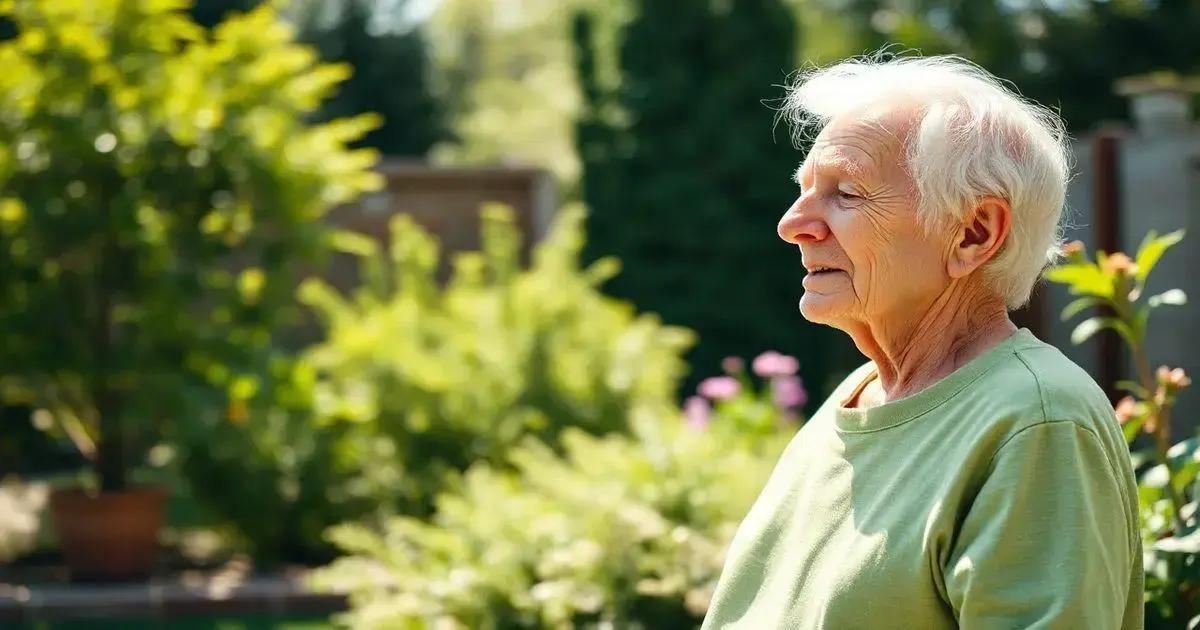To safeguard lung health after 50, focus on understanding age-related changes, make vital lifestyle adjustments like quitting smoking and staying active, have regular check-ups to monitor lung function, and practice breathing exercises to enhance respiratory health.
As we age, protecting our health becomes increasingly important, especially lung health. Starting at age 50, our lungs may face various changes that can impact overall health. The good news is that there are effective ways to safeguard lung function and maintain respiratory wellness. In this article, we will delve into essential topics, ranging from understanding lung health over 50 to lifestyle changes and exercises that can enhance lung function.
Understanding Lung Health Over 50

Maintaining healthy lungs is critical for everyone, especially those over 50. As we age, our lung capacity and efficiency can decrease, making it essential to understand how to support lung health. Age-related changes in the lungs include decreased elasticity and narrowing of the airways, which can affect breathing and overall respiratory function.
At age 50 and beyond, people may notice symptoms like shortness of breath during physical activity or increased fatigue. These changes can be exacerbated by factors such as smoking, pollution, and lack of exercise. Smoking is particularly harmful, causing long-term damage to lung tissue. Quitting can make a significant difference in lung health.
Moreover, exposure to environmental pollutants can also harm lung function. It’s vital to minimize exposure to air pollution, allergens, and indoor toxins, such as smoke and dust. Choosing to live in areas with better air quality can be beneficial.
Recognizing Symptoms
Being aware of the symptoms of declining lung health can help prompt early interventions. Common signs might include persistent cough, wheezing, and chest tightness. Regular health check-ups can help monitor any changes.
Importance of Lifestyle Choices
Healthy lifestyle choices play a significant role in preserving lung function. A balanced diet rich in antioxidants, regular exercise, and staying hydrated are essential practices. Foods like fruits, vegetables, and whole grains provide nutrients that support lung health.
Staying Active
Incorporating physical activity that focuses on endurance and flexibility can also aid lung health. Activities like walking, swimming, and yoga can improve breathing efficiency and lung capacity.
Lifestyle Changes for Better Lung Function

Making lifestyle changes can significantly improve lung function, especially after 50. A few simple adjustments can lead to better respiratory health. Quitting smoking is the most crucial step. If you smoke, seek help to quit, as this will protect your lungs from further harm.
Another important change is to increase physical activity. Regular exercise helps strengthen respiratory muscles and improves lung capacity. Aim for at least 150 minutes of moderate aerobic activity each week, such as brisk walking or swimming. Strength training exercises twice a week can also be very beneficial.
Nutrition Matters
Your diet plays a vital role in lung health. Consuming a balanced diet with plenty of fruits and vegetables can provide essential nutrients that support lung function. Foods rich in omega-3 fatty acids, such as fish, can help reduce inflammation.
Hydration
Staying hydrated is equally important. Drinking enough water helps keep the mucosal membranes in the lungs moist and aids in clear breathing. Aim for at least eight glasses of water a day.
Avoiding Pollutants
Limiting your exposure to air pollutants can lead to better lung health. This includes avoiding secondhand smoke, staying indoors on high-pollution days, and using air purifiers in your home. Allergens like dust and molds should be kept at bay to minimize respiratory issues.
Importance of Regular Check-ups

Regular check-ups are essential for maintaining lung health, especially for individuals over 50. During these visits, healthcare providers can perform various tests to assess lung function and detect potential issues early. Routine screenings can reveal changes in lung capacity or efficiency that might not be noticeable otherwise.
It is recommended for adults over 50 to have a comprehensive lung health check-up at least once a year. This check-up should include spirometry tests that measure how much air you can breathe in and out, and how quickly you can exhale. Such tests are crucial for identifying conditions like Chronic Obstructive Pulmonary Disease (COPD) or asthma.
Monitoring Symptoms
During regular visits, discuss any symptoms you may experience, such as a persistent cough, shortness of breath, or wheezing. These indicators can help your doctor make informed decisions about your lung health and necessary treatments.
Vaccinations
Regular check-ups are also an excellent opportunity to stay updated on necessary vaccinations. For example, the flu vaccine and the pneumonia vaccine are critical for protecting lung health in older adults. Your healthcare provider can help determine what vaccinations are appropriate for you.
Personalized Health Plans
Healthcare professionals can create personalized health plans based on your unique health status, lifestyle, and risk factors. This proactive approach enables better management of lung health and helps guide you in making healthier lifestyle choices associated with lung function.
Breathing Exercises for Seniors

Breathing exercises are highly beneficial for seniors, as they can improve lung function and overall well-being. These exercises help increase lung capacity, strengthen respiratory muscles, and promote relaxation. Here are some effective breathing exercises for seniors to incorporate into their daily routine.
Diaphragmatic Breathing
Diaphragmatic breathing is a simple exercise that helps engage the diaphragm for deeper breaths. To practice this exercise, sit or lie down in a comfortable position. Place one hand on your chest and the other on your belly. Inhale slowly through your nose, allowing your belly to rise while keeping your chest still. Exhale gently through your mouth, noticing your belly fall. Repeat this for 5-10 minutes daily.
Pursed Lip Breathing
Pursed lip breathing helps control your breathing and improves oxygen flow. To practice, inhale slowly through your nose for a count of two. Then, purse your lips as if you were going to whistle and exhale slowly for a count of four. This technique is especially helpful during physical activity to keep breathing steady.
Box Breathing
Box breathing promotes relaxation and reduces stress. Inhale deeply for a count of four, hold your breath for a count of four, exhale for four counts, and hold again for four counts. Repeat this cycle for several minutes, focusing on your breath and calming your mind.
Counting Breaths
This simple exercise is great for awareness. For each inhale, silently count “one” and with each exhale, count “two”. Continue this up to 10 and then restart. This technique can help center the mind and promote a sense of calm.
In conclusion, safeguarding lung health after 50 is essential for maintaining a good quality of life
By understanding the changes that occur in lung function, making vital lifestyle adjustments, and incorporating regular check-ups, seniors can significantly improve their respiratory health.
Engaging in specialized breathing exercises can further enhance lung capacity and efficiency, making breathing easier and more productive.
With proactive steps and a commitment to health, individuals can effectively protect their lungs and enjoy a more vibrant, active lifestyle.
FAQ – Frequently Asked Questions about Safeguarding Lung Health After 50
Why is lung health important after 50?
Lung health is critical after 50 because age-related changes can reduce lung capacity and efficiency, making it essential to safeguard respiratory function.
What lifestyle changes can improve lung health?
Lifestyle changes like quitting smoking, increasing physical activity, maintaining a balanced diet, staying hydrated, and avoiding pollutants can boost lung health.
How often should I get my lungs checked?
It is recommended to have a comprehensive lung health check-up at least once a year, especially for individuals over 50.
What are some effective breathing exercises for seniors?
Effective breathing exercises include diaphragmatic breathing, pursed lip breathing, box breathing, and counting breaths, all of which can enhance lung function.
What should I discuss with my healthcare provider during check-ups?
Discuss any symptoms like coughing or shortness of breath, undergo lung function tests, and inquire about necessary vaccinations and personalized health plans.
How can I maintain my lung health at home?
You can maintain lung health at home by practicing breathing exercises, staying physically active, eating a healthy diet, and avoiding exposure to smoke and pollutants.












